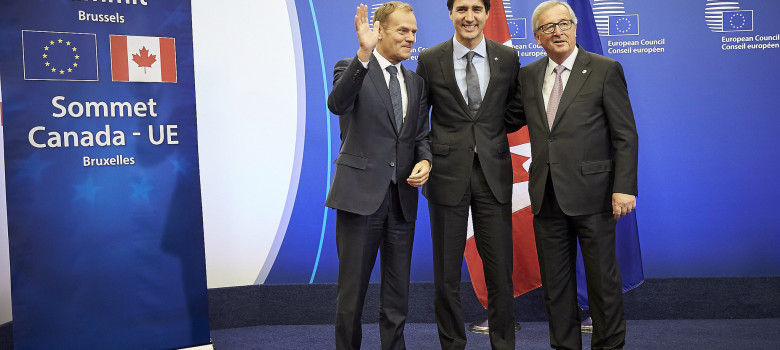The costs associated with the increased patent protections for pharmaceutical drugs in the trade agreement between Canada and the European Union has long been one of the most controversial elements of the deal. At least one study has pegged the cost to provincial health care at more than a billion dollars. In response to those concerns, the Conservative government promised to compensate the provinces for the increased costs. Earlier this year, when officials from Health Canada appeared before a House of Commons committee, they acknowledged that it is hard to estimate the actual cost but that they knew that the agreement would increase the costs of drugs in Canada.
Last week, Steve Verheul, the lead Canadian CETA negotiator, appeared before another House of Commons committee and was asked if the department has done any analysis on the financial impact of the extended patent protection. Remarkably, Verheul said that it has not, arguing that it is difficult to come up with a projection. In fact, when pressed on the issue, Verheul speculated that perhaps costs would not increase since Canadians already pays higher prices for pharmaceutical drugs than consumers in European countries such as the UK, France or Germany.
These comments from Canada’s lead CETA negotiations are simply bewildering.
First, the lack of study on the financial impact of a key element of the CETA highlights a crucial flaw in the government’s rosy assessments of the deal. While the government has been claiming that CETA will deliver major gains for Canadians, its own officials have not even studied some of the financial costs associated with the same agreement. A reasonable analysis of the benefits and costs of the deal would surely factor extended patent protections into the equation.
Second, these comments reinforce that the government’s implementing legislation includes patent reforms for which the costs remain an unknown. As Bill C-30, the CETA implementation bill, receives second reading today, it would appear the government cannot answer a simple question on the likely impact and cost of the bill’s patent provisions.
Third, claims that the Canadian market would not face increased prices because we already pay high prices points to a complete misunderstanding of the pharmaceutical marketplace. The large pharmaceutical companies lobbied for these changes specifically because it would extend the term of protection and keep cheaper generic alternatives off the market for an extended period of time. Canada’s already high pharmaceutical prices are reason not to extend the term of patent protection, not a justification for why there may be a limited impact on Canadian health care costs.








Economists are speech writers, they are concerned with how to present a chosen side as objective.
I don’t even know if they understand math, or are oblivious that their ‘assumptions’ are actually specifying their answer
The fact that a cost analysis wasn’t really even a consideration is just another admission that they’re only focused on approving these “deals”, regardless of what the Public thinks.
More proof that our government is increasingly captured by corporate interests.
I agree. I heard Christia Freeland on the radio talking about this stuff, and she really believes she’s doing the right thing. Which is fine, but there are a lot of details that haven’t been addressed. And I thought she glossed over the issue of ISDS, which is kind of a big deal.
If the ISDS provisions in NAFTA were agreed upon because people were worried about corruption in Mexico, why is it such an important element of CETA? (Long rant skipped, but man I hate that shit.)
Pingback: “It’s the economics stupid” « Aberdeen Political Economy Group
Pingback: CETA Bill Hits 2nd Reading as Officials Admit They Haven’t Studied Financial Impact of Patent Reforms – WP RSS Aggregator Advanced Demo